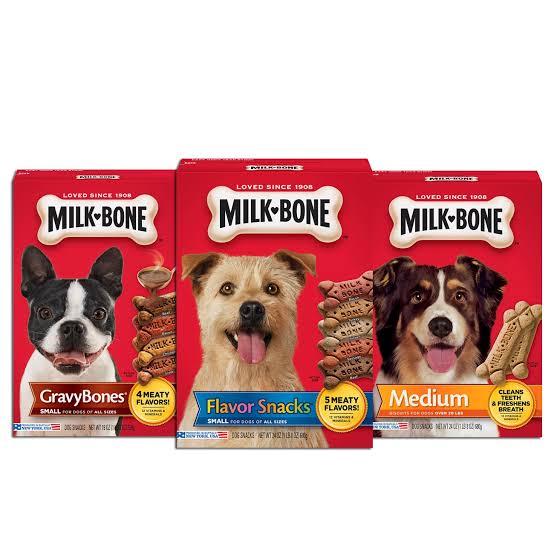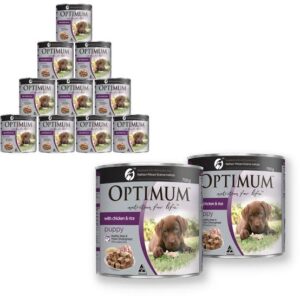Milk Bone Dog Treats

Milk Bone Dog Treats:- As a pet owner, you likely want to ensure that your dog is not only happy but also receiving safe and nutritious treats. With the abundance of options available on the market, it can be challenging to distinguish which treats are genuinely good for your pet and which may pose risks. Among the many popular dog treats in the United States are Milk-Bone dog treats. popular dog treats in the United States are Milk-Bone dog treats.
These crunchy, bone-shaped biscuits are a common sight in pet stores and supermarkets alike. But despite their popularity, some concerns have been raised about their ingredients and potential health risks. In this article, we’ll explore whether Milk-Bone dog treats are healthy or unhealthy, separating facts from myths to help you make informed decisions for your dog’s wellbeing.

What Are Milk-Bone Dog Treats?
Milk-Bones have been around since 1908 and have become a beloved treat for dogs over the years. Despite their name, these treats are not made from actual bones or exclusively from milk. Instead, they are bone-shaped biscuits made primarily from a combination of minerals, meat products, milk, and other ingredients. While they started as simple, crunchy treats, Milk-Bone has expanded its range to include soft and chewy varieties, as well as options for tartar control and specific nutritional needs.
Milk-Bones have become a household name, particularly in the U.S., where they are among the most commonly purchased dog treats. Yet, their long-standing presence doesn’t mean they are without controversy.
Concerns About Milk-Bone Ingredients
When it comes to analyzing whether a dog treat is healthy or not, one of the first places to look is the ingredient list. Milk-Bone dog treats contain ingredients that have raised concerns among some dog owners and veterinarians alike.
1. Sugar in Some Milk-Bones
One of the main concerns is the inclusion of sugar in certain Milk-Bone products. For example, Milk-Bone Essential Plus Oral Care lists sugar as the third ingredient. While sugar can be palatable and even enjoyable for dogs, excessive consumption can lead to negative health effects. Just as with humans, high sugar intake in dogs can contribute to obesity, dental problems, and potential metabolic issues. Dr. Ernie Ward, a veterinarian, has pointed out that dogs are likely to consume treats containing sugar rapidly, leading owners to offer more. This pattern could lead to unhealthy weight gain or other health complications in the long term.

2. BHA as a Preservative
Another ingredient that raises eyebrows is Butylated Hydroxyanisole (BHA), a preservative used in some versions of Milk-Bone treats. BHA is a known carcinogen in certain lab animals, which has caused concern among pet owners about its use in pet foods. While the FDA has declared BHA safe for use in small amounts, the question remains whether long-term exposure through daily consumption of treats containing this preservative could harm your pet. The risk may be small, but for cautious pet parents, the potential for BHA to contribute to health issues, including cancer, is enough to warrant concern.
3. Wheat and Other Hard-to-Digest Ingredients
Milk-Bone treats contain wheat, corn, and soy, ingredients that many dogs find difficult to digest. While not all dogs are sensitive to these ingredients, some can experience gastrointestinal discomfort, allergies, or food intolerances. Dogs, in general, are less capable of processing wheat and other grains compared to humans, and for dogs with sensitivities, these treats can lead to digestive issues, skin irritations, and other allergy-related problems.
Are Milk-Bones Unhealthy for All Dogs?
While it’s clear that some ingredients in Milk-Bone dog treats can be problematic, it’s important to recognize that not all dogs will experience negative effects. For dogs with no known food sensitivities or allergies, Milk-Bones can be an enjoyable and occasional treat. However, the risks associated with long-term exposure to ingredients like sugar, BHA, and wheat make it crucial for pet owners to exercise caution.
Healthy Alternatives to Milk-Bone Dog Treats
If you’re concerned about the potential risks associated with Milk-Bones, there are plenty of healthier alternatives on the market. Many companies now offer organic, grain-free, and all-natural dog treats that cater to dogs with specific dietary needs. For example, subscription services like BarkBox and Super Chewer allow you to customize the treats you receive, ensuring they are free from common allergens like wheat, corn, and soy.

These all-natural treats typically contain higher-quality ingredients and are free from artificial preservatives and additives. By choosing treats made with wholesome ingredients, you can provide your dog with snacks that are both delicious and nutritious.
Milk-Bone Soft & Chewy Dog Treats: A Closer Look
One of the more popular variations of the Milk-Bone brand is their Soft & Chewy line, which features flavors like beef and filet mignon. These treats are marketed as being made with real meat and fortified with vitamins and minerals, making them seem like a more wholesome option. While these treats may be easier to chew and more appealing to some dogs, it’s essential to review the ingredient list carefully to ensure they align with your dog’s dietary needs.
The key to feeding your dog treats—Milk-Bones or otherwise—is moderation. While treats can add joy and variety to your dog’s diet, they should not make up a large portion of their caloric intake. Monitoring your dog’s treat consumption and ensuring that their primary diet is nutritionally complete is crucial for maintaining their health.
Are Milk-Bone Dog Treats Healthy or Unhealthy?
Ultimately, whether Milk-Bone dog treats are healthy or unhealthy depends largely on your dog’s individual dietary needs and how often you offer them. For dogs with no known sensitivities and when given in moderation, Milk-Bones can be an acceptable treat. However, the inclusion of ingredients like sugar, BHA, and wheat means that Milk-Bones are not the healthiest option available.
If you’re concerned about the potential long-term effects of feeding your dog these treats, it may be worth exploring healthier alternatives that are free from artificial additives and common allergens. Your dog’s health is a top priority, and offering them high-quality, nutritious treats is one way to ensure they live a long, happy, and healthy life.
Also Read:-




